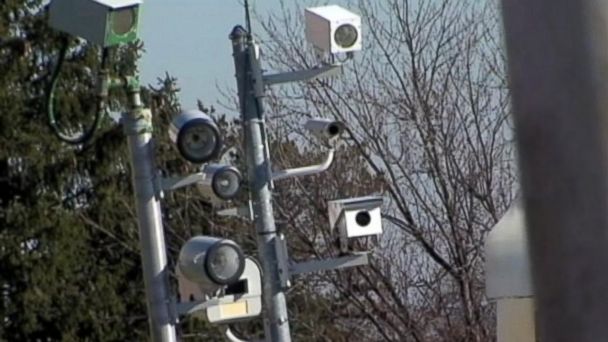Traffic Cameras Rife With Bogus Violations, Audit Shows
It's the flash out of nowhere - when you don't expect it, sometimes when you don't deserve it - cameras set to capture traffic violations.
At an intersection in Baltimore, video shows a driver clearly stopped, but the unmanned speed camera cited the car, with brake lights on and traffic whizzing in front of it, for going 38 miles per hour in a 25 mile per hour zone.
It's a costly mistake at $40 a ticket, and a pretty common one at that, according to an audit leaked to the Baltimore Sun that has the city council investigating.
An evaluation in 2012 by consultant URS Corp. of the camera system run by Xerox State and Local Solutions found an error rate of more than 10 percent, a figure 40-times higher than initial claims, The Sun reported.
Some individual cameras were off by as much as 50 percent.
Xerox told The Sun it would not comment on the audit and has not returned calls seeking comment from ABC News.
Nationwide, about half the states use traffic cameras. According to the Insurance Institute for Highway Safety, 501 communities have red light camera programs and 135 communities have speed camera programs as of this month.
The traffic cams are cheaper than radar guns, but class action lawsuits in Ohio and New York attack their reliability.
A small Ohio village was recently ordered by a judge, who called the speed cameras a scam, to repay nearly $1.8 million collected from speeding tickets. And in New York, a class action suit stipulates that the yellow light duration requirement of three seconds was reduced to less time to increase profits.
In Maryland, Steen Johnson videotaped his speed after he received multiple tickets saying he was speeding. The video clearly showed Johnson 10 miles below the limit, but the speed camera ticketed him for 10 miles over.
School teacher Erin Grunden got five tickets near her Maryland school. She took her problem to the math department.
"I was clocked at 51 miles per hour, which a math teacher figured out is physically impossible for me to be going that fast [pulling out of the parking lot]," Grunden said. "I think that the speed cameras are inaccurate."
Her 10-year-old Honda couldn't reach that speed in the short distance from school driveway to ticket camera, she said. In all 22 teachers were ticketed in front of the school, and many said what bothers them most is that the private company running the cameras is paid by the ticket.
"If there is one thing we know about the power of markets is that if you give people financial incentives it will change their behavior, and so if you give companies an incentive to ticket more, lo and behold they will ticket more," said Phineas Baxandall , a senior analyst with the U.S. Public Interest Research Group. "That is not really what this should be about. This should be about maintaining safety."
Los Angeles voted in 2012 to stop the cameras altogether. Twelve states in the nation have passed legislation to regulate speed camera enforcement, according to the Governors Highway Safety Association, and nine states prohibit the use of red light cameras.
Advocates for motorists say cameras slow people down and that their use is growing.
In Washington, D.C., cameras have been implemented at 32 stop signs, with additional cameras monitoring for failing to clear an intersection, over-sized vehicles on restricted routes, and failure to stop for pedestrians in crosswalks.
Costing you cash in a flash, even if undeserved, because sometimes the picture doesn't tell the whole story.

Credit: ABC News